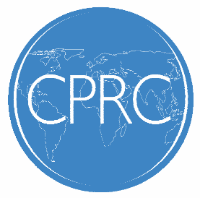
The Columbia Population Research Center integrates demographers, sociologists, political scientists, lawyers, economists, statisticians, historians, physicians, and social and public health workers. Together, our common aim is to promote the health and well-being of vulnerable populations.
We approach these populations—poor men, women, children, and families; cross-border and rural-urban migrants; racial, ethnic, and sexual minorities; persons with or at risk of contracting HIV/AIDS and other sexually transmitted infections—in the context of local and global social and economic inequalities. Correspondingly, our research extends from the urban laboratory that is New York City to over 50 developing countries.
Projects
Integrating research from faculty in the Mailman School of Public Health, the School of Social Work, and the School of Arts and Sciences, the work of the Children, Youth, and Families group covers a wide range of topics, including:
- prenatal influences on child and adult development, focusing on mental health (Ezra Susser), as well as economic outcomes (Douglas Almond)
- the long-run effects of early childhood conditions and experiences, including low birthweight, child abuse, exposure to toxins, and the role of programs such as Medicaid, WIC, and Head Start (Janet Currie)
- the adverse impact of prenatal exposure to air pollutants and environmental hazards (Virginia Rauh)
- the influence of family and neighborhood characteristics on child outcomes and the role of interventions such as IHDP and Early Head Start (Jeanne Brooks-Gunn)
- work-family policies and child and family well-being (Jane Waldfogel and Wen-Jui Han)
- teacher- and school-level influences on student achievement (Tom DiPrete)
- identifying effective teachers (Jonah Rockoff)
- the costs of inadequate education (Hank Levin)
- household bargaining and family relationships (Pierre-Andre Chiappori)
- the capabilities, relationships, and resources of unmarried couples with children and the effects of all these on child well-being (Irv Garfinkel, Ron Mincy)
- fundamental causes of SES differentials in health and mortality (Bruce Link and Jo Phelan)
- effects of welfare and child support policies on child and family well-being (Irv Garfinkel, Neeraj Kaushal, Ron Mincy, Jane Waldfogel)
- effects on children of war and civil strife (Neil Boothby)
